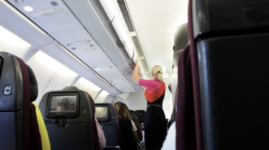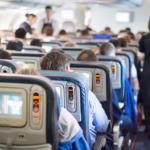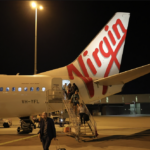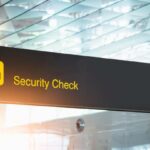Criminal Offences Relating to the Use of False Information to Take a Flight

If a friend or family member has booked a flight but can no longer go, could you use their ticket and take the trip instead?
The short answer is, only if the ticket is changed by legitimate means into your name.
In fact, the use of false information to travel on airlines in Australia could constitute a number of offences under the Criminal Code Act 1995 (Cth).
Here’s what you need to know.
Key terms
There are a number terms utilised under the Code in relation to flight-related offences including “constitutional flight”, “constitutional airport”, “air passenger ticket” and “false identification information”.
A constitutional flight means:
- a flight that starts or ends in a Territory; or
- a flight between Australia and a foreign country in which an aircraft is used in the course of trade or commerce, for the carriage of passengers; or
- a flight between one State and another State in which an aircraft is used in the course of trade or commerce, for the carriage of passengers.
A constitutional airport means:
- a Commonwealth aerodrome within the meaning of the Crimes (Aviation) Act 1991 ; or
- another airport, if the airport is in a Territory.
An air passenger ticket means a ticket, or electronic record, on the basis of which a person is treated as being entitled to travel as a passenger on:
- the flight; or
- a journey that includes the flight.
Identification information means information, or a document, relating to a person (whether living, dead, real or fictitious) that is capable of being used (whether alone or in conjunction with other information or documents) to identify or purportedly identify the person.
Information will be false if it is false in a material particular that affects the capacity of the information to be used (whether alone or in conjunction with other information or documents) to identify the person.
The offence of utilising false information to obtain an air passenger ticket
Section 376.4(1) of the Criminal Code Act makes it an an offence punishable by up to 12 months in prison for a person to use false identification information to obtain an air passenger ticket on a constitutional flight, being at least reckless as to whether information is used to identify them (or another person).
A person was ‘reckless’ if he or she was aware there is was substantial risk the information would be used for identification purposes and, having regard to the circumstances known to him or her, it was unjustifiable to take that risk but the person proceeded with the actions regardless.
The offence of taking a flight with false information
Section 376.4(2) of the Criminal Code Act makes it an offence punishable by a maximum penalty of 12 months in prison to take a flight using an air passenger ticket where:
- false identification information was used (whether by the defendant or another person) to obtain the ticket; and
- the flight is a constitutional flight
The offence of using false information at constitutional airports
Section 376.2 of the Criminal Code Act makes it an offence punishable by up to 12 months in prison to use false identification information at a constitutional airport being reckless as to whether the information is used to identify the defendant as a passenger on a flight.
The offence of using false information via a carriage service to obtain an air passenger ticket
Section 376.3(1) of the Act makes it an offence punishable by up to 12 months in prison to use a carriage service (such as the internet or a phone) to obtain an air passenger ticket if:
- false identification information is used to obtain an air passenger ticket being reckless as to whether the information is used to identify the defendant, or another person, as a passenger on the flight; and
- the flight starts and ends within Australia.
The offence of using false information via a carriage service to take a flight
And section 376.3(2) of the Act makes it an offence punishable by up to 12 months in prison to use a carriage service (such as the internet) to obtain take flight using an air passenger ticket if:
- false identification information is used to take flight being reckless as to whether the information is used to identify the defendant, or another person, as a passenger on the flight; and
- the flight starts and ends within Australia.
Legal defences
A number of legal defences may apply to these charges including duress, sudden or extraordinary emergency and even self-defence, which covers actions in defence of yourself or another person.
In the event you are able to raise evidence of a legal defence, the onus then shifts to the prosecution to prove beyond a reasonable doubt that the defence does not apply in the circumstances.
You are entitled to an acquittal if the prosecution is unable to do this.
Going to court for a flying-related?
If you have been charged with flying-related offence, call Sydney Criminal Lawyers anytime on 9261 8881 to arrange a free first conference during which one of our experienced criminal defence lawyers who will advise you of your options and the best way forward, and fight for the optimal outcome.
Receive all of our articles weekly
Related Articles
RELATED LEGISLATION
- Section 376.4(1) Criminal Code Act 1995 | Using False Identification Information to Obtain an Air Passenger Ticket for a Constitutional Flight
- Section 376.4(2) Criminal Code Act 1995 | Constitutional Flight Offence Taking A Flight Using An Air Passenger Ticket
- Section 376.2 Criminal Code Act 1995 | Using False Identification Information at Constitutional Airports
- Section 376.3 Criminal Code Act 1995 | Obtaining an Air Passenger Ticket with False Information using a Carriage Service






